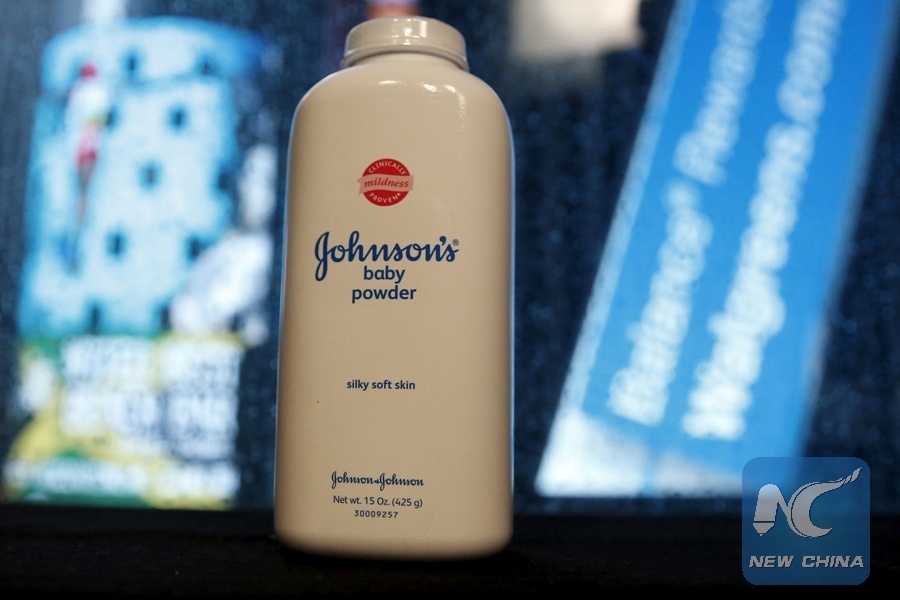
File photo: A bottle of Johnson and Johnson Baby Powder is seen in a photo illustration taken in New York, in this image taken February 24, 2016. (Xinhua/REUTERS)
LOS ANGELES, Aug. 21 (Xinhua) -- A California jury panel on Monday ordered the world's largest health-care company, Johnson&Johnson, to award 417 million U.S. dollars to a 62-year-old woman with ovarian cancer.
The ruling by the jury panel of Los Angeles County Superior Court came after it found the company was liable for failing to warn the woman about the cancer risks of using talcum products.
In the first such case going to state-court jury in California, Eva Echeverria, testified in a video showed during the trial that she used the Johnson's Baby Powder from age 11 until 2016, when she saw a news story about a woman with ovarian cancer who had also used the product.
Echeverria, diagnosed with ovarian cancer in 2007, is too weak to show in the court after a surgeon removing a softball-sized tumor. She claimed that if the Johnson put a warning label on the product showing a linkage between talc and cancer, she would not use it for so many years.
Moreover, her attorneys stressed that the Johnson had known long ago about cancer risks of using its talcum products but still marketed the unsafe products without any warning label as some experts advised.
The company argued that the plaintiff's allegations aren't supported by scientific evidence and studies conducted by federal agencies, including the U.S. Food and Drug Administration.
After two days of closing arguments by lawyers, the jury at last decided to award Echeverria with 68 million U.S. dollars in compensatory damages and 340 million U.S. dollars in punitive damages.
In May, a Missouri jury awarded a Virginia woman 110.5 million U.S. dollars for a similar allegation, by then, three other Missouri juries had awarded a total of 197 million U.S. dollars to plaintiffs who made similar claims.
There are more than 300 similar cases pending in California and about 4,800 claims in U.S. courts.
The company immediately announced it would seek to overturn Monday's verdict, saying science supports the safety of the Johnson's Baby Powder.
Talcum powder is made from talc, a mineral made up mainly of the elements magnesium, silicon, and oxygen. As a powder, it absorbs moisture well so that is widely used in cosmetic products such as baby powder and adult facial powders for keeping skin dry and helping to prevent rashes.
According to American Cancer Society, even though many studies have looked at the possible link between talcum powder and ovary cancer, researches on this field are continuing since findings have been mixed.
Some studies reported a slightly increased risk and some reported no increase, the nationwide voluntary health organization dedicated to eliminating cancer explained on its official website that, emphasizing that many case-control studies have found a small increase in risk, but these types of studies can be biased because they often rely on a person's memory of talc use many years earlier.

